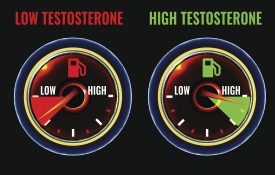-
Facebook finally wants to help humans build meaningful connections
Facebook has just done an about-face. After turning the world into one big, aggressive, competitive, depressing, hyper-connected community that shares tons of information nobody needs to know about their personal lives, the social network is now emphasizing privacy. On Wednesday (March 6) Facebook CEO Mark Zuckerberg published a post outlining Facebook’s latest pivot, away from the town square model of very publicly sharing videos, pictures, and status updates with everyone, to something more akin to your living room.
-
Boost Your Body Acceptance For Better Health
We all can feel the effects of weight stigma, no matter what our size. In this episode, we help you feel good about the body you're living in and give strategies to improve your health without obsessing about your weight. Recognize that weight stigma can actually harm your physical health. Here's what to remember: In one research study, people were pulled out of what they thought was a "shopping psychology" study because they wouldn't fit into the designer clothes set up for the experiment. Afterward, those people had higher cortisol levels than those who weren't excluded.
-
Empathy Is Too Much Work for Many of Us
Whatever your politics, few would take issue with President Barack Obama's eloquent endorsement of empathy. At the 2016 Democratic convention, he urged Americans "to see ourselves in each other," and then to act accordingly. So why do we step around the homeless person without giving him a second thought? Or ignore appeals to assist refugees, or victims of natural disasters? New research offers a surprising answer: Empathizing with others takes effort, and, generally speaking, we'd rather not expend the energy. "There is a common assumption that people stifle feelings of empathy because they could be depressing or costly," said lead author C.
-
How We Roll: Study Shows We’re More Lone Wolves Than Team Players
What credo would you choose: “Share and share alike?” or “To each his own”? The choice doesn’t relate only to material goods or socialism versus capitalism. It can also reflect attitudes about how we solve our collective problems, such as affordable access to health care or threats from climate change. Despite the existence of shared resources in our lives—water, air, land, tax dollars—some people will lean into a go-it-alone approach, with each individual deciding for themselves what’s best. Others will look to group decision-making. What’s the tipping point for shifting from maverick to team player?
-

New Research From Psychological Science
A sample of research exploring neural processes underlying attention, collective emotions and resilience, and group-based deprivation and extremist beliefs.
-

How DNA and Testosterone May Affect Men’s Driving
New findings raise the possibility that men with a specific mix of biology and personality traits may be prone to aggressive driving as well as other fiery behavior.

